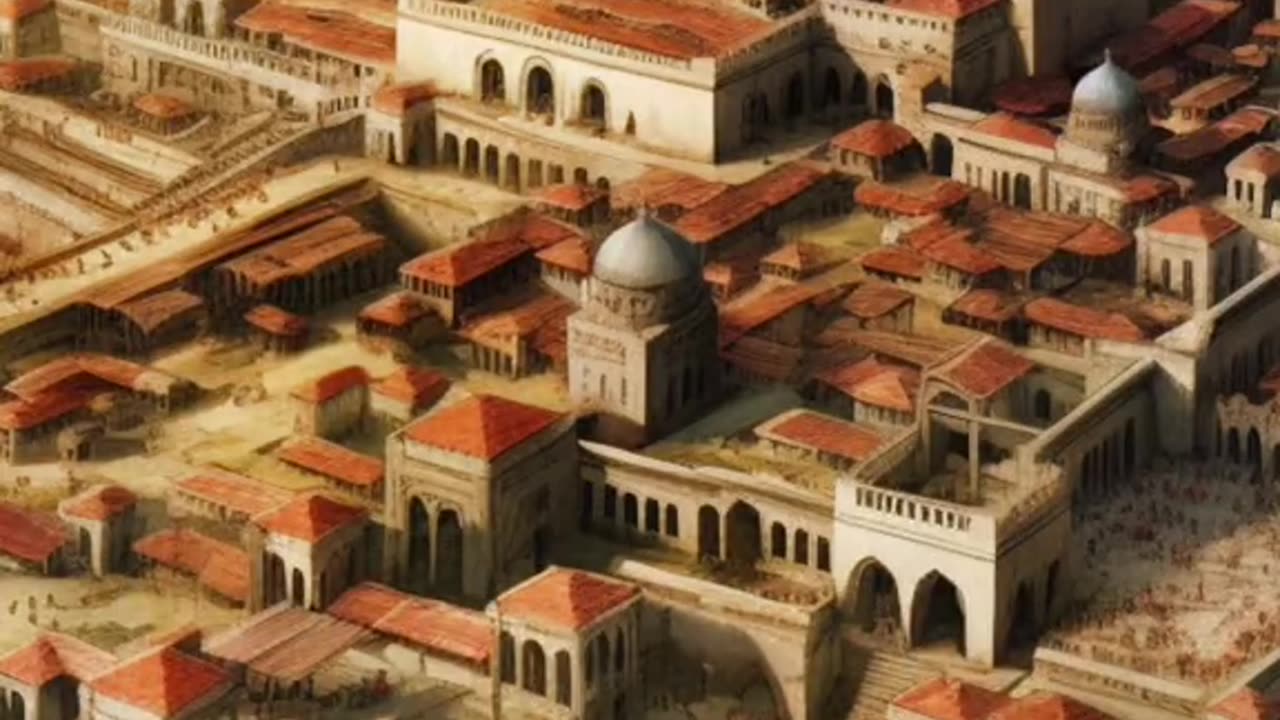Premium Only Content

Mamluks: Elite Slave Soldiers Who Shaped Islamic Empires
The Mamluks were a fascinating group of elite slave soldiers who played a significant role in shaping various Islamic empires, particularly during the medieval period. Here's an overview of the Mamluks and their historical significance:
1. Origins:
The term "Mamluk" is Arabic and translates to "owned" or "slave." Mamluks were, indeed, slaves, often of Turkic or Circassian origin, who were purchased as young boys, converted to Islam, and then trained for military service.
2. Formation:
The Mamluk phenomenon began in the Islamic world around the 9th century, but they gained prominence notably in the 13th century.
The most renowned Mamluk dynasties were in Egypt and the Levant.
3. Egyptian Mamluks:
The Mamluks in Egypt established their dynasty after overthrowing the Ayyubid rulers in 1250. They continued to rule until 1517 when Egypt fell under Ottoman control.
The Mamluk Sultanate of Egypt became known for its military prowess and the architectural marvels of Cairo.
4. Military Power:
Mamluks were highly trained and disciplined soldiers, often serving as cavalry. They became the backbone of many Islamic armies.
Due to their loyalty to their commanders rather than a hereditary ruler, Mamluks were sometimes more politically stable than other states in the region.
5. Cultural Contributions:
The Mamluk period saw significant cultural and artistic achievements. They were patrons of architecture, literature, and the arts, contributing to the vibrant cultural scene of their time.
6. Trade and Diplomacy:
Mamluks were active in trade and diplomacy, establishing connections with various regions. Their control of key trade routes was crucial to the economic prosperity of their empires.
7. Decline:
Internal power struggles and external pressures, including invasions by the Mongols and later the Ottoman Empire, led to the decline of the Mamluk dynasties.
8. Ottoman Rule:
The Ottoman Empire, led by Sultan Selim I, defeated the Mamluks in 1517, bringing Egypt under Ottoman control. However, the Mamluks continued to play a role in Ottoman military and administrative structures.
9. Legacy:
The Mamluks left a lasting impact on the history, culture, and architecture of the regions they ruled. Their legacy is particularly evident in the architectural wonders of Cairo, such as the Citadel and the Mosque of Muhammad Ali.
The Mamluks represent a unique chapter in Islamic history, where slaves rose to political and military prominence, leaving an indelible mark on the empires they served.
-
 LIVE
LIVE
Alex Zedra
1 hour agoLIVE! New Game | The Escape: Together
458 watching -
 LIVE
LIVE
FreshandFit
2 hours agoJoe Budden Arrested For Being A Perv! Tesla Cybertruck Explosion
4,947 watching -
 DVR
DVR
Kim Iversen
5 hours agoNew Year, New PSYOP?: The Fort Bragg Connection In The New Years Terror Attacks
14.2K67 -
 1:41:18
1:41:18
Glenn Greenwald
4 hours agoTerror Attacks Exploited To Push Unrelated Narratives; Facing Imminent Firing Squad, Liz Cheney Awarded Presidential Medal | SYSTEM UPDATE #381
51K65 -
 LIVE
LIVE
Man in America
6 hours ago🔴 LIVE: Terror Attacks or False Flags? IT DOESN'T ADD UP!!!
1,490 watching -
 1:02:38
1:02:38
Donald Trump Jr.
8 hours agoNew Year’s Terror, Latest Breaking News with Sebastian Gorka | TRIGGERED Ep.204
128K271 -
 59:59
59:59
The StoneZONE with Roger Stone
3 hours agoAfter Years of Targeting Trump, FBI and DOJ are Unprepared to Stop Terror Attacks | The StoneZONE
19.2K5 -
 1:26:42
1:26:42
Leonardaisfunny
2 hours ago $0.79 earnedH-1b Visas: Infinity Indians
5.06K17 -
 1:08:33
1:08:33
Josh Pate's College Football Show
6 hours ago $0.33 earnedPlayoff Reaction Special: Ohio State Owns Oregon | Texas Survives | UGA vs Notre Dame Takeaways
4.9K1 -
 58:04
58:04
Kimberly Guilfoyle
6 hours agoFBI's Terror Response Failures, Live with Steve Friend & Kyle Seraphin | Ep. 185
84.8K36